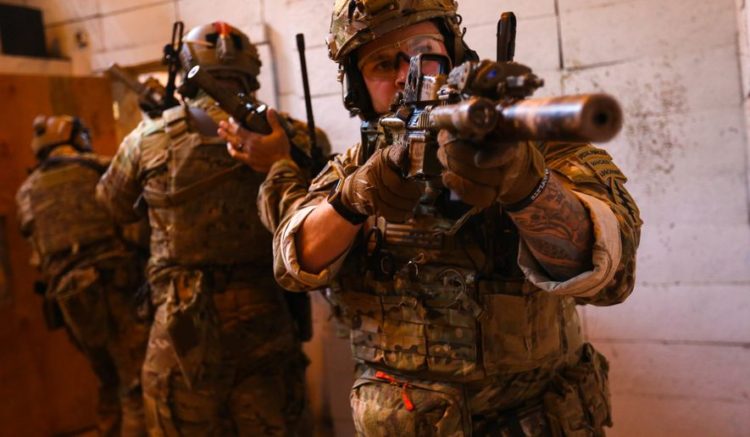A new private maritime training facility promises to provide the most realistic training possible to maritime special operations units such as Navy SEALs, Marine Raiders, or Special Forces dive teams. BEI Maritime, a company that specializes in realistic maritime training, is building an indoor training facility that will be able to hold everything from a small ship to simulated ship sides.
Scott Chierepko, a retired Navy SEAL and co-founder of BEI Maritime, said the new facility will be constructed next to Currituck County’s airport, in the Greater Norfolk area, to facilitate the incoming SOF teams. It will require about 25 acres of real estate at an approximate cost of $25 million. It’ll be available to military, law enforcement, and private companies. The training facility is expected to be operational by 2021.
According to the company, the training center will be the most advanced “in the maritime industry, featuring multiple training resources and a complete campus for comprehensive instruction in short-term and long-term training programs.”
“We will provide a harsh maritime training environment in a controlled indoor facility,” said Chierepko.
Among other training skills, operators will be able to practice helocasting and visit, board, search, and seizure (VBSS) operations. Helocasting is when troops are inserted (or dropped) from a helicopter into a body of water. It’s a valuable but dangerous insertion method that allows for the rapid deployment of troops. A helicopter slowly hovers above the desired spot while the troops jump in the drink. A drop of any distance more than a few feet can be lethal. Helocasting can also be used to insert or extract Zodiac inflatable boats; such insertions are called “hard duck” or “soft duck” depending on if the Zodiac is fully inflated or not.
Chierepko, who has more than 20 years’ experience in special operations and maritime environments, said that the BEI Maritime complex is expected to attract more than 6,000 trainees every year.
The concept behind the facility isn’t new. The German Kommando Spezialkrafte (KSK) also have a maritime training facility to train in maritime operations. Known as the Multifunktionshalle (multifunctional room), the training complex has a special audio system that can replicate the sound of a helicopter’s rotors and a special effects system that can create realistic waves.
The benefit of having access to such training establishments is twofold: First, special operators can train in a much more efficient and safe manner. Second, units don’t have to rely on helicopter or watercraft support, thus also avoiding taxing the fleet. The downside, of course, is that operators aren’t training in the most realistic way possible. Still, it’s a reasonable comprise.
Already have an account? Sign In
Two ways to continue to read this article.
Subscribe
$1.99
every 4 weeks
- Unlimited access to all articles
- Support independent journalism
- Ad-free reading experience
Subscribe Now
Recurring Monthly. Cancel Anytime.











COMMENTS